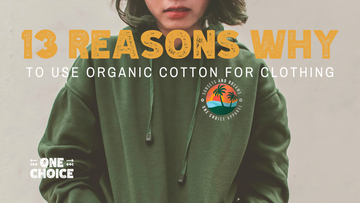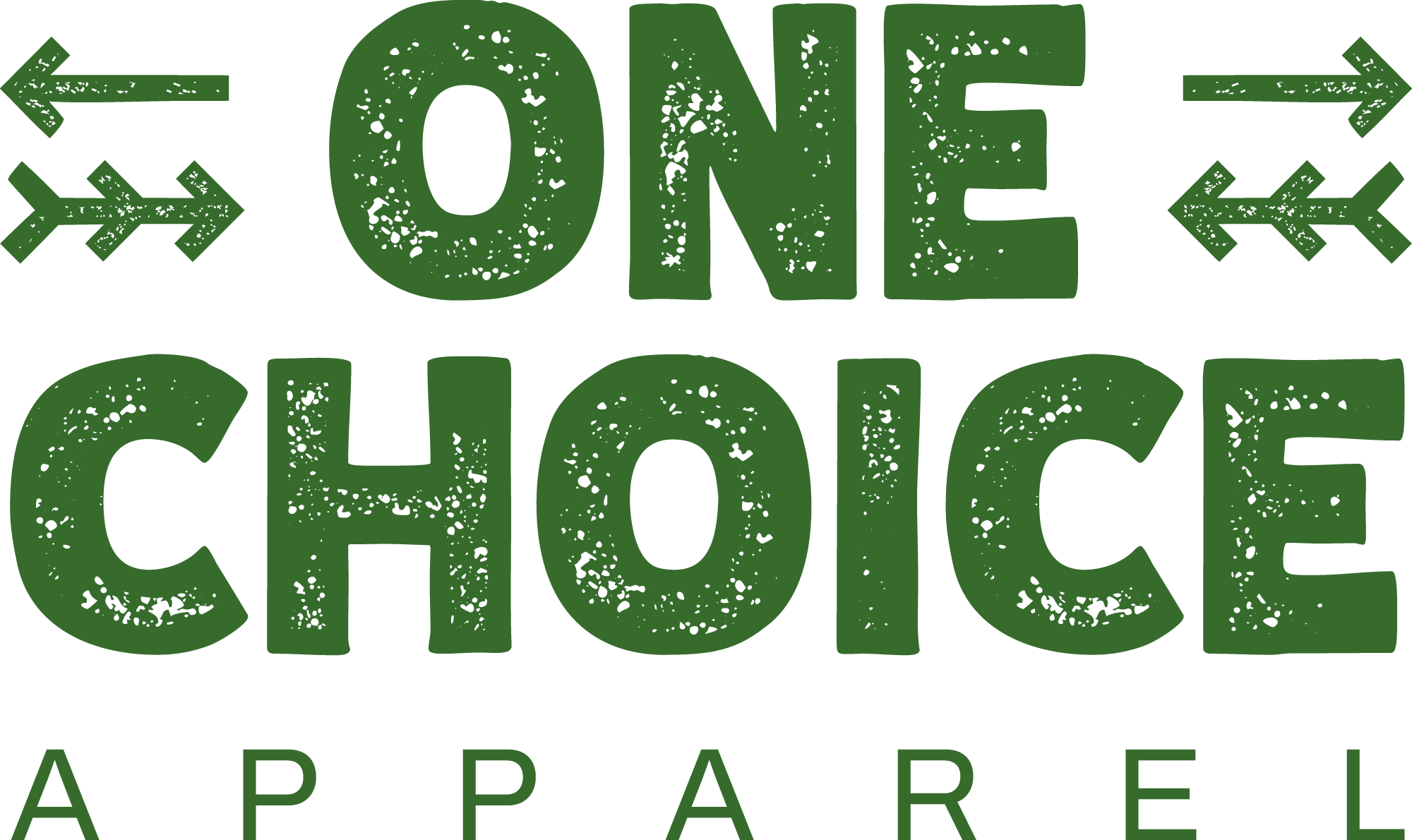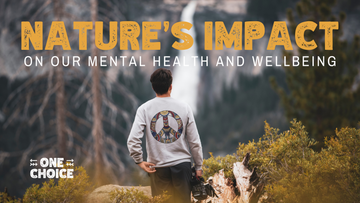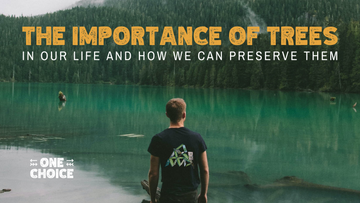
Clothing is one of the highest consumed goods in the world. Whether it's everyday wear or even a designer, we all need them.
People end up getting more and more clothing as they go through life. As styles change and trends come and go, you only see increasing demand.
However, a shirt that might be an ordinary shirt to you harms many stakeholders, including the environment around you.
What if we told you there is a way to reduce your carbon footprint by switching to organic cotton clothing? However, you may ask yourself, 'why is organic cotton better?'
Here are some reasons you should choose organic cotton clothing when you make your next clothing purchase!
What Is The Difference Between Organic And Inorganic Cotton?
Before we dive into the benefits of organic cotton clothing, let's first discuss what the product is! Organic cotton is usually made from natural seeds. It can be defined in many ways, but the main definition is that it is cotton grown without using synthetic and harmful chemicals.
There is also no use of pesticides or growth promoters, and the process is kept as natural as possible. The farming practice is catered to with biodiversity and biological cycles. Insects are used to keep away problems of pests, and the crops produce safe products.
However, regular cotton growth does not make use of these practices. It usually has degrading soil quality, removes natural nutrients, and the crops are not as healthy. They also use chemicals, pesticides, and insecticides.

The 13 Benefits Of Purchasing Organic Cotton Clothing
There are many personal, environmental, and socio-economic benefits of sustainable fashion. The best choice you can make is to switch to organic cotton clothing.
Here are some reasons you might want to consider the switch
1. Breathable and Light Weight
The thing with organic fabric clothing is that it offers natural fibres. Those help to make the cloth a lot more breathable. This makes it a great option for warmer climates.
All countries, along with the equator, struggle with humid and hot weather. Most clothing, especially synthetic ones, is not suitable for this climate.
They can irritate your skin, make your feel hotter, and may additionally trap heat that can make you feel suffocated.
Organic cotton fibres allow moisture to evaporate, making you feel cooler. It is much more lightweight, soft and does not retain odour.
You will find yourself washing an organic cotton t-shirt less often than synthetic ones. They do not hoard bad odours and are much more maintainable. This inevitably saves you a lot more water, resources, energy, and does not put the clothing through wear and tear.
2. Durability
One of the key features of organic cotton clothing is that it will last you a lifetime! It is lightweight, soft, and breathable, but at the same time, the cloth is a lot more durable than its counterparts.
You can wash it easily and still not see it look old, jagged, or faded.
Fun fact: Cotton is made with one of the strongest natural fibres. Denim, Gingham, Terry, Velour, Velvet, and Poplin are all made from the same plant species.
3. Better for Children
Organic cotton clothing is recommended for children. There are a lot of features that make mothers pick organic cotton over synthetic clothing.
To start, non-organic cotton is treated with flame retardants that contain chlorine and bromine. These can easily contaminate the human body as well as the environment.
These retardants are also linked to damaging the nervous and reproductive systems of humans and can impact thyroid function.
Organic cotton, however, is the exact opposite! Your child can wear different clothing and not have to worry about chemicals, synthetics, and toxins.

4. No Use of Synthetics
A lot of our cheaper clothing is made of synthetic materials. This includes polyester, nylon, or microfleece.
These materials are not just synthetics themselves but are also made with petrochemicals. They tend to irritate the skin and can be bad for children too.
Synthetic clothing also sheds plastic fragments that are more popularly known as microfibers. These fibres are now everywhere in our eco-system because of the clothing we wear.
It can impact not just us but the water quality and the aquatic life around us. You might find these microfibers in the next crab or lobster you enjoy.
5. No Use Of Chemicals
Nobody is a fan of chemicals in the world where sustainable fashion is making movements. Most clothing that ends up in your wardrobe has perhaps gone through chemical treatments, synthetic materials, and toxic dyes.
A pesticide in the plant can end up as a pesticide in the food you eat. The case is the same with the clothing you wear.
A toxic dye can enter the supply chain when you wear the product or use it. It can end up in your system through your nose, eyes, and mouth. Additionally, it can ever prove to e hazardous for your pets or children.
All agricultural pesticides have a tri-fold effect on your body. It has links with many food allergies, obesity, and Alzheimer's.
6. Getting More Quality
Organic certified organizations always priorities quality over quantity. They don't want to mass-produce textile and feed the demand.
They focus on making materials that fulfil organic criteria and are safe for consumers. In addition, to his, the workers are much more fairly treated than other textile productions. They are paid well and not overworked.
This is why they give more quality output than those working in sweatshops and garment factories in the line of production.
All stages of production are audited to make sure everything is in place, in addition to process, manufacturing, and trading stages that are all monitored.

7. Making Your Contribution To Saving water
Yes, making active sustainable fashion choices severely. It Impacts water conservation, as well. Organic practices of growing plants are much more sustainable and resource-friendly.
Many farmers opt for crop rotation that reduced both water usage and the rate of pollution. Cotton on its own is known as a thirsty crop.
It takes up more than 2 per cent of the global water footprint. However, organic practices tackle exactly that issue. They make farming practices much more sustainable.
For example, the better cotton fast track program shows how cotton can be grown with 20% less water. In addition, it also reduces dyes, treatments, and chemical baths for clothing.
If textile standards comply with GOTS, it helps produce a new line of organic textile clothing!
8. Creating Future Models
By choosing sustainable fashion, we are not just impacting ourselves but the greater good. Organic cotton provides a model for sustainability like no other.
A model we can use for the future and reduce our waster. Most farmers grow organic cotton through rainfed channels.
This also means that local water sources are not burdened with growing the crop. Moreover, it does not use the regular chemicals that are used otherwise, which makes it safer for people to use.
Many water-scarce countries are still growing cotton despite the crop being water thirsty. Around 2700 litres go into making a t-shirt that we wear.
These figures can change if there a small switch to organic cotton instead of non-organic textiles.
9. Making Our Food System Better
Did you know that organic cotton can also contribute towards making our food system better? That is precisely the case.
Organic cotton is made and grown from organic cotton seeds. These seeds can be used in many other food products as well.
There is cottonseed oil that can be used industrially to make cookies, chips, vegetable oil, and the greatest benefit: Feeding livestock.
While we don't eat cotton fibre, its seeds are definitely a product that makes way to our diet and then to our systems.
This is considered a healthy alternative to many other saturated fats and is not dangerous.

10. Better Lives For Cotton Farmers
The most affected in the trade of cotton are cotton farmers. This is why switching to an organic source impacts them the most.
When farmers don’t have to use a range of pesticides, insecticides, and chemical toxins to grow their crops, they enjoy larger profits for their annual harvest.
Another factor that helps them is crop diversity, which is a common feature of organic farming methods. They can use their land to grow other types of crops and benefit from those too.
You help by creating a demand for a product, and it can impact the lives of many farmers who have to use non-organic farming methods to keep up with the increasing demand from the textile industry.
In addition to that, whenever farmers buy seeds, it is considered an initial investment, but when those seeds are modified, they have to go back to larger corporations whenever a new harvest is sown.
Agro corps use this dynamic and try to control more and more farmers while enjoying the maximum profits for themselves. Dropping the demand for such cotton can really help farmers who are bound by these practices.
11. Fairer Treatment Of Workers
Your small choice of clothing can have a huge impact on the fair treatment of workers. Most workplaces have GOT certification to respect their workers and abides by human rights.
They get paid fairly, are provided with protected gear, hygienic conditions, and safety. It does not allow any room for child labour, coercion, discrimination, excessive hours, or any kind of unjust treatment of workers.
It keeps the workers happier and much more sustained than non-organic practices. There are not just physical benefits but social ones too!
12. Less Corporate Control Of Farms With GMOs
Cotton is grown in countries like China, India, and the US, where the climate is more suitable for crop growth. Most of these are grown with GMO seeds, which are mass-marketed by larger corporations.
The campaigns include calling these seeds pesticide and herbicide-resistant. However, many GMOs have been seen to have an active ingredient with glyphosate, which is a potential carcinogen.
Carcinogens can lead to genetic damage, birth defects, and other kinds of health effects. They are banned from edible products, but someone is still used in farming practices today.
13. Protecting Our Bodies
There are many ways you can go green by switching to organic cotton clothing. You do this by limiting how toxins spread from family to family.
Everyone in the supply chain is exposed to clothing chemicals all day long. This includes factory workers, farmers, and retail workers. These toxins are transferred into their kin.
One of the prevalent chemicals are existing within the textiles is poly-fluorinated chemicals. This includes PFCs like GoreTex and Teflon.
Adding these ingredients help by making the fabric a lot more water and grease resistant, and it helped in the industrial revolution by providing durable clothing.
However, as the needs change with time, these very chemicals are responsible for cancer organ damage, endocrine disruption, and reproductive damage.
Data shows how the air quality of an apparel brand storefront has 20 to 60 times higher PFCs than urban outdoor air.

You, too, can make a difference.
Organic cotton clothing benefits our eco-system, which includes us! Caring for the environment and making eco-conscious choices is always a progressive step towards producing minimal waste.
Every year we almost produce 26 metric tonnes of cotton, which majorly goes to the apparel industry, where only 1% of the entire cotton production is comprised of organically grown cotton.
However, people like you can change that figure! The people have in their power to influence the decision of farmers, producers, manufacturers, and retailers.
A collective effort can drive the change we want to see in the world, and it is never too late to start.



